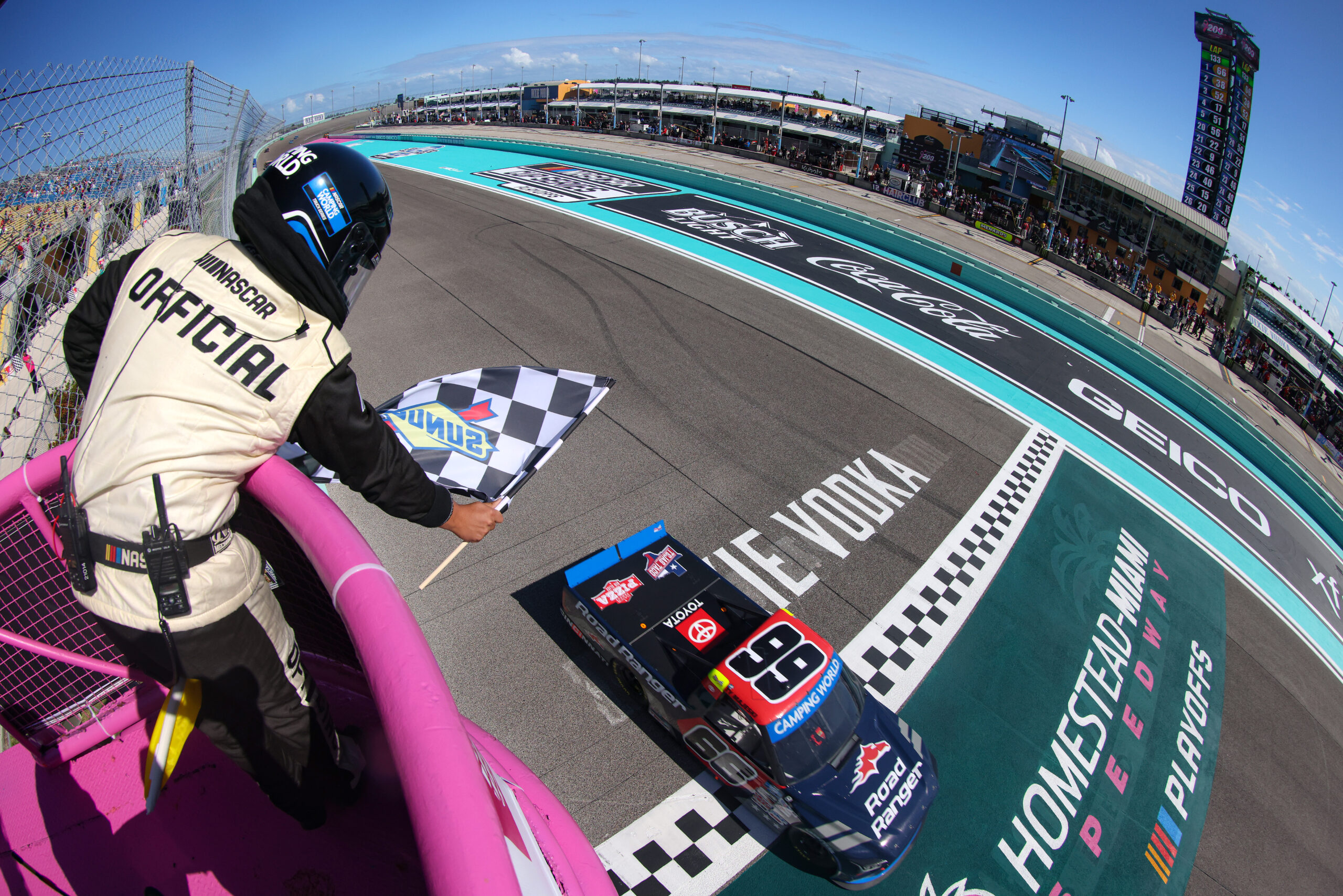2023 Baptist Health 200, Homestead-Miami Speedway
Front Runners highlights the drivers that lead laps, run fast laps, and run inside the top 10, 5, & 3 the most at correlated track types.
My thoughts on this week’s race, including selection of tracks for Front Runners, and the issues I’m focused on are discussed in depth in the Betting Preview Article (although that focuses on Cup, rather than Trucks, the track selection is still important).
The charts below are sorted by percentage of laps led by default. There are also a few more columns that you can choose to display but for ease of display those columns are hidden by default. First, some notes on the data:
- How percentages are calculated:
- For laps in the Top 10, 5, 3, and led, the calculation is laps that driver completed in those positions divided by laps that driver has completed.
- For fastest laps the calculation is fast laps recorded by the driver divided by all fast laps in the data set. Unfortunately its just super complicated to calculate how many fast laps were available while the driver was still running.
- For laps run the calculation is laps completed by the driver divided by all laps possible in the data set.
- Average running position is weighted by how much of a race the driver completed. So a driver completing 50% of one race with an average running position of 5 and 100% of a second race with an average running position of 15, will have a calculated average running position of 11.67, not 10, because the second race has twice as much weight.
- Fin-Start takes the average finishing position of a driver and subtracts the driver’s average starting position from it. Negative numbers mean a driver has improved from the start, positive numbers mean the driver’s finishing position is worse than their starting position.
- Fin-ARP take the the average finishing position of a driver and subtracts the driver’s average running position from it. As with Fin-Start, negative numbers show finishes better than average running position, while positive numbers show finishes worse than the driver’s average running position. In effect, positive numbers mean a driver has been unlucky, negative numbers suggest a driver has been lucky.

